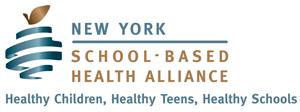Original article written by Shannon Firth for MedPage Today
Psychiatrist Tami Benton, MD, health system’s facilities have seen a 30% to 50% rise in mental health visits among young people who previously had no mental health problems, but are now expressing concerns about depression, anxiety, and eating disorders, as well as suicidal ideation and behavior. Some kids have to be transported across state lines to receive care, she added. Members of the Senate Health, Education, Labor, and Pensions (HELP) Committee met in April to discuss the country’s response to mental health and substance use disorders (SUDs) during the COVID-19 pandemic. Chairwoman Patty Murray (D-Wash.) cited similar challenges in her state. For instance, Seattle Children’s Hospital has seen visits by children experiencing mental health emergencies more than triple, from 50 visits per week pre-pandemic to 170 visits per week, and youth suicide rates in King County have risen 30%, she said. Murray emphasized that the problem isn’t only that more people need mental health care, but that accessing care has proven difficult for many. She called for “significant investments” in existing programs that help communities to address mental health and SUDs.
Murray applauded passage of the SUPPORT Act of 2018 to address opioid abuse, and the CARES Act of 2021, which supports expanded access to mental health care via telehealth, but said neither bill is sufficient to address the current challenges.Telehealth is convenient and discreet but is not a replacement for access to quality, affordable providers in the community, Murray said. She called for recruiting, training, and retaining enough mental health care professionals to truly meet the needs of the country. Benton pointed out that an estimated 15 million children in the U.S. require mental health services, yet there are only about 8,000 to 9,000 child psychiatrists serving the most severely impacted children. That same workforce shortage extends to psychologists, social workers, nurse practitioners, nurses, and community health workers who could address some of these children’s needs, she added.
Benton pointed to “successful” partnerships in Pennsylvania between community mental health centers and a “cluster of schools” to assure that they are conducting trauma-informed training for teachers, school administrators, and for families. She also highlighted peer-to-peer counseling/support with trained young people. Experts can and should encourage young people to seek out a trusted adult when they are in crisis, but they are far more likely to approach their friends, and those friends often do not know how to respond to someone who says, “‘I feel like killing myself.'” But Benton cited “tremendous success” with peer counselors who are trained to respond to suicidal youth. “Providing opportunities for identification of suicidal youth in all community settings, is essential,” and “making that training available in one of its many forms … could save lives,” she said.
To read the full article, CLICK HERE.

